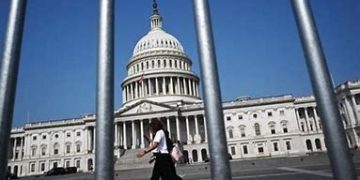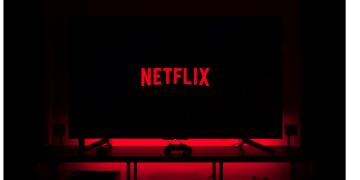WASHINGTON ― The federal government ran out of money for the second time in a month early Friday morning, as lawmakers could not agree to prevent another lapse in funding.
The White House began advising parts of the government to prepare for another shutdown late Thursday night, but there were still questions on whether the government would technically close, as Congress still had the ability to prevent the furlough of government workers if the House and Senate could pass a bipartisan bill overnight.
That prospect seemed to be thinning, however.
Sen. Rand Paul (R-Ky.) continued to object to the Senate voting on spending caps on Friday until lawmakers voted to end the debate on the agreement.
After the senators conclude their debate, Paul and other senators may have an additional hour to speak against the agreement before the Senate votes on its final passage. This means the final vote in the Senate could occur closer to 3 a.m.
Update: At 1:45 a.m., the Senate voted 71-28 to pass a bipartisan bill to fund the government. The bill now moves to the House, where its chances of passing are considerably less certain.
Once the bill is approved by the Senate, a House clerk will need to prepare it, which could take several hours. After that, lawmakers must advance the legislation out of the Rules Committee, adopt a rule governing the debate on the bill, and then hold the final vote for passage.
The whole process could take several hours, potentially pushing a vote to midmorning.
Federal Government
The Trump administration could offer guidance suggesting that agencies not furlough workers because a bill is expected shortly, but any hiccup in the timing could send the government into a hard shutdown.
There’s also the matter of the House actually passing the bill.
The outcome of the forthcoming vote remains uncertain. Democrats have indicated limited support, while several dozen conservative Republicans have expressed their intention to oppose the bill.
Republican leaders contend that this initiative represents a bipartisan agreement and assert that Democrats should contribute an appropriate number of votes. Conversely, Democratic leaders emphasize that the House is under Republican control. They argue that any failure to pass the bill should be attributed to the Republicans, specifically citing House Speaker Paul Ryan’s reluctance to offer Democrats the same procedural assurances that Senate Majority Leader Mitch McConnell (R-Ky.) extended to Senate Democrats several weeks ago. McConnell had committed to bringing a bill concerning the Deferred Action for Childhood Arrivals (DACA) immigration program to the floor, including an amendment process that would permit Democratic input in the legislative process.
Even if the votes align, the timing issues related to preparing the bill and getting it to President Donald Trump’s desk could still lead to a shutdown. Additionally, there is good reason to believe that the votes in the House are secure.
Democratic House members have voiced opposition to the deal’s lack of protections for young undocumented immigrants, known as Dreamers. And Democrats leaving a caucus meeting Thursday night generally seemed opposed to passing the bipartisan deal on spending caps until Ryan gave Democrats those assurances on DACA.
Meanwhile, Trump spent Thursday night tweeting about Sen. Mark Warner (D-Va.).
Trump said earlier this week he’d “love to see a shutdown” if Congress couldn’t pass a deal by Thursday that included his demands for immigration restrictions.
Trump’s Presidential Oath Ceremony: Date, Time, and Historical Significance




























